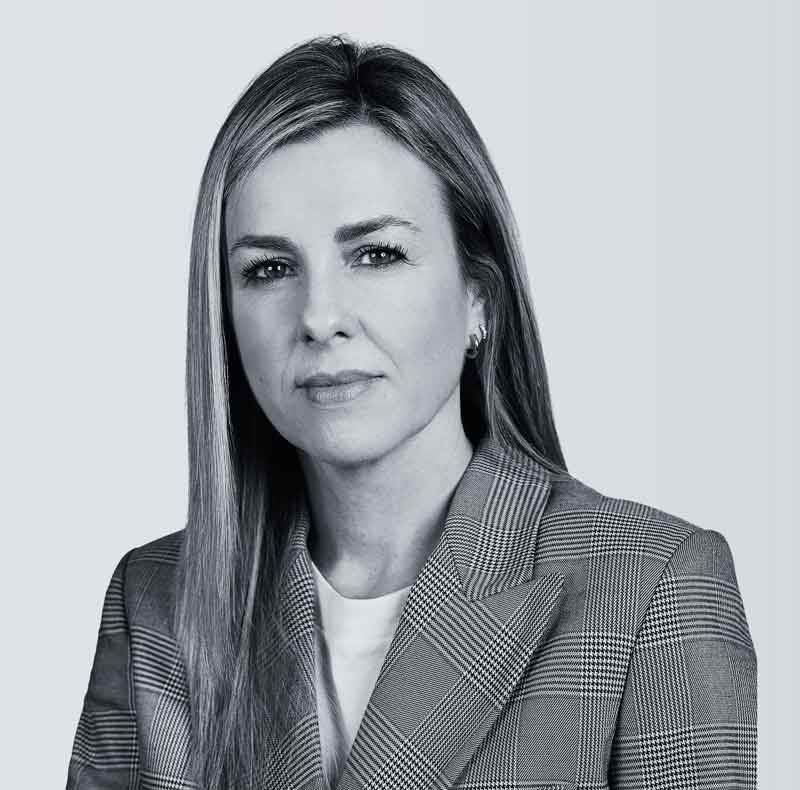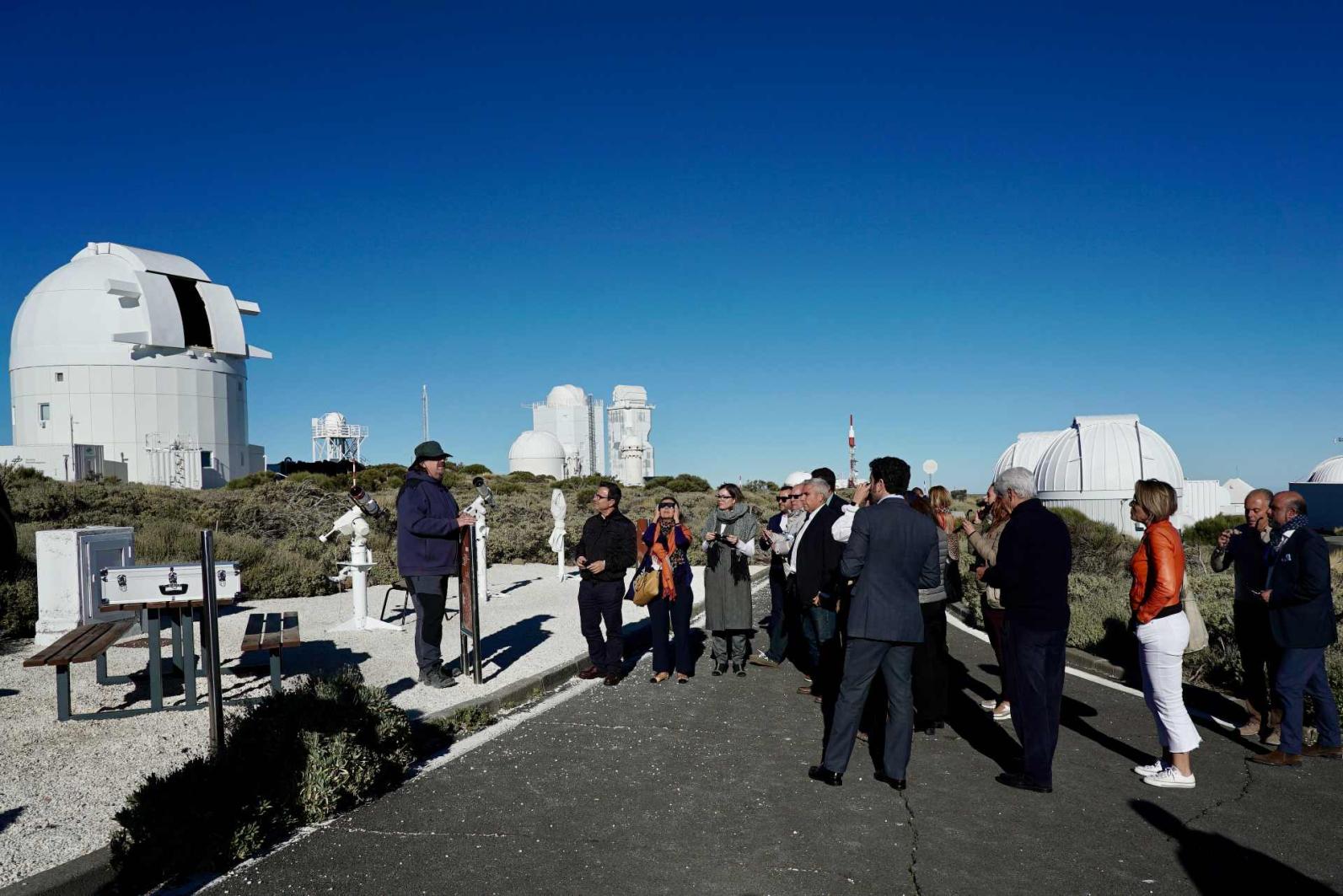The Institute of Astrophysics of the Canary Islands (IAC) and Fundación Occident consolidate their Visiting Researchers programme
6/6/24 | Fundación Occident
"The Fundación Occident Visiting Researchers programme of the Institute of Astrophysics of the Canary Islands (IAC) is consolidated in the 2024 edition."
On this occasion, the IAC will receive a dozen internationally renowned visiting researchers who will spend between one and three months at the centre, in order to work together to exchange knowledge and strengthen collaborative ties. This programme is being carried out thanks to the agreement between the IAC and Fundación Occident, which dates back to 2014.
The Fundación Occident Visiting Researchers programme is one of the work strategies of the Institute of Astrophysics of the Canary Islands (IAC), which maintains a collaboration with Fundación Occident and aims to strengthen international collaboration to strengthen scientific activity and links with different entities around the world.
Within the framework of this programme, the collaboration agreement between Fundación Occident and the IAC began in 2014, coinciding with the first period of the IAC accreditation as a Severo Ochoa Centre of Excellence, a mark of excellence granted by the Spanish Government that recognises, rewards and promotes high level scientific research at national centres.
In this decade of collaboration, the programme has made it possible for more than 50 internationally renowned researchers to stay at the IAC.
In the 2024 edition, this programme has received confirmation from almost a dozen prestigious scientists, such as Nataliia Shchukina, an expert in Solar Physics and from the Astronomical Observatory of the National Academy of Sciences of Ukraine.
To corroborate the close collaboration between both entities, on Thursday 6 June, a presentation ceremony is taking place at the headquarters of the IAC, which will be participated by the Director of the IAC, Rafael Rebolo; the Deputy Director of the IAC, Casiana Muñoz; the Director of the of Office of Transfer and Institutional Actions (OTAI) of the IAC, Anselmo Sosa; and the Deputy Director of Fundación Occident, Susana Codina. In addition, the host researcher Javier Trujillo and guest researcher Nataliia Shchukina will also be participating, and who are demonstrating their interest in the IAC's Solar research lines of work.
Nataliia Shchukina explains that “working in the IAC offers an opportunity because for years I have been collaborating with IAC research staff, especially in solar matters, a field in which the institution really excels. It is an honour for me to participate in this research. For this reason, this stay allows me to join a team to improve my skills and to be able to access, for example, first-level computational technology together with very brilliant researchers, such as Javier Trujillo Bueno, with whom I have been collaborating for years.” Likewise, the Director of the IAC, Rafael Rebolo, explains that this exchange programme demonstrates the international leadership of the IAC because “every year a large number of leading researchers from all around the world show their interest in working with IAC research groups to increase both their knowledge in a specific area and their relationships between research centres around the globe.”
From Fundación Occident, its director Ignacio Gallardo-Bravo, highlights that “the programme strengthens our support for research in Spain, as well as our desire to promote local research groups with the knowledge of leading international experts. We consider the IAC to be a leading institute at a global level that manages two of the best observatories in the world. The Canary Islands are the ideal setting for astrophysics observation, whereas the institution has reached a high level of excellence, as assessed by the Fundación Occident Visiting Researchers.”
Confirmation for 2024
Apart from Dr Nataliia Shchukina, this year the following researchers have confirmed their participation in this programme, Dr Evanthia Hatziminaoglou, an expert in the formation and evolution of galaxies, who comes from Germany and is head of the European ALMA Regional Centre (ARC); the researcher Dr Leticia Carigi of the Institute of Astronomy at the National Autonomous University of Mexico (IAA-UNAM), who works in the field of the Milky Way and the Local Group of Galaxies; The theoretical physicist specialising in Cosmology and Astroparticles, Dr Benjamín Groinstein, from the University of California in San Diego (USA), a pioneer in the construction and operation of several Effective Field Theories (EFTs) of particle physics; and Dr Thomas Henning, German astrophysicist and department director of the Max Planck Institute of Astronomy in Heidelberg, which is dedicated to the study of planetary systems and the Solar System.
Also planning to visit the IAC is Dr Carlos José Díaz Baso, an expert in Solar Physics and a postdoctoral researcher at the Rosseland Centre for Solar Physics at the University of Oslo (Norway); Dr Rob Fender, head of Astrophysics at the University of Oxford (United Kingdom), who will be focusing his work on stellar and interstellar physics; and Prof. Marc Pinsonneault, from the University of Ohio, a leading scientist in the fields of solar physics, stellar physics and galactic archaeology.
The common denominator of all these visits is to deepen the scientific relationship of the host research group with the visiting researcher's group and, on the other hand, to initiate new lines of action based on the generation of new scientific interests.
Contact for press and media

Jone Paredes
comunicacion@gco.com

